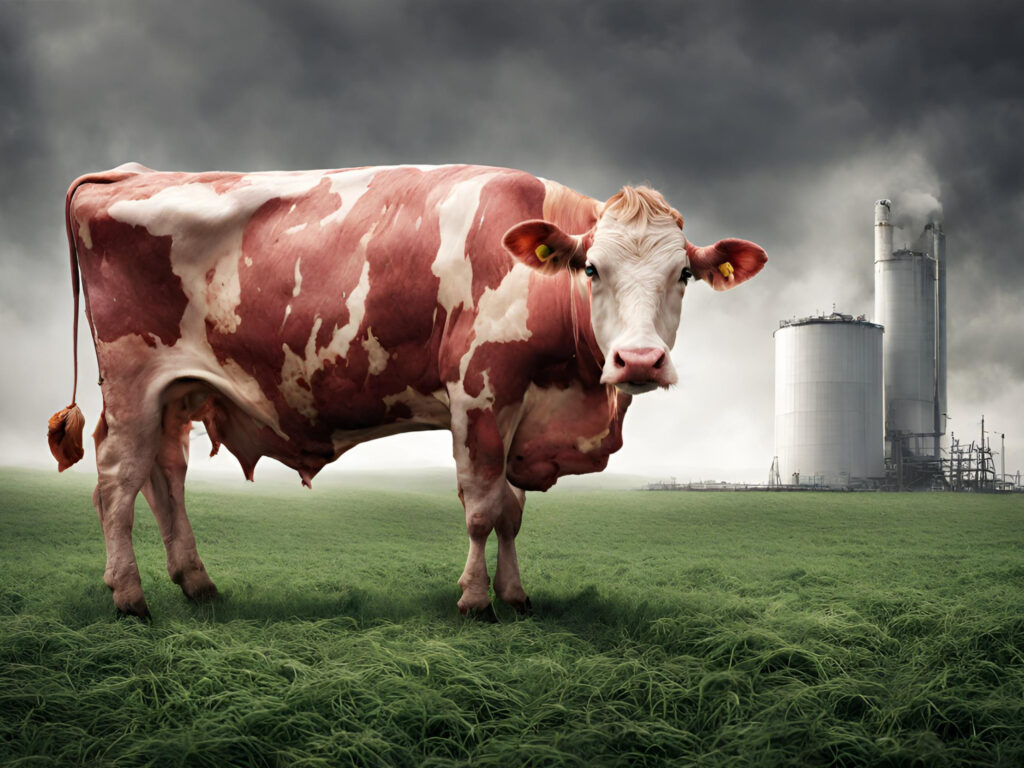
6 Mins Read
Beef and lamb are among the foods that face the biggest threats from competition with cultivated meat, underscoring why some lawmakers want to ban the latter.
One country and six US states have so far passed laws that prohibit companies from making or selling cultivated meat within their boundaries.
For Italy, the reason behind the ban was a threat to its cultural identity. For policymakers in the US, while the arguments often touch upon food safety concerns, more often than not, they are tied to the same theme: protecting the ranchers.
Take Nebraska, the latest state to join the list. Its governor is Jim Pillen, owner of one of the country’s largest pork processors, who has repeated this rhetoric over the last few months. “It’s important we get on the offence so that Nebraska farmers and ranchers are not undermined,” he said last year when making a promise to ban these proteins.
Jack Williams made a similar comment when putting forward a similar proposal in Alabama. “Meat comes from livestock raised by hardworking farmers and ranchers, not from a petri dish grown by scientists. We are protecting our farmers and the integrity of American agriculture,” he said, before the law came into effect last October.
Then there’s Ron DeSantis, the governor of Florida, on a mission to “save our beef”. “Some people think Florida is theme parks, South Beach and maybe some oranges, but they don’t understand that we have one of the top cattle industries in the country,” he said when signing the bill to ban cultivated meat last May.
“What we’re protecting here is the industry against acts of man, against an ideological agenda that wants to finger agriculture as the problem, that views things like raising cattle as destroying our climate.”
Those are all strong words, based on a common theme: cultivated meat is a threat to the livestock industry. And a new study seems to confirm those fears, highlighting how this novel food leaves staples like beef and lamb susceptible, and the planet happier.
Carbon taxes could threaten high-polluting foods

The socio-economic analysis was conducted by researchers at the UK’s James Hutton Institute and Norway’s Ruralis Institute for Rural and Regional Research. They modelled two scenarios – one with a carbon tax, one without – to measure the impact of cell-cultured foods on both the food system and global emissions.
Funded by the Research Council of Norway, the authors noted how cultivated meat offers much better benefits for the planet. Studies have shown that when produced via renewable energy, these proteins can have a 92% lower impact on global heating, need 95% less land, and use 78% less water compared to conventionally farmed beef.
The issue, however, is that the livestock industry is backed by vast government subsidies that enable producers to keep animal proteins cheap, and make it much more difficult for cultivated meat, already a highly expensive technology, to compete on price.
For example, in the EU, over 80% of farm subsidies are directed towards animal agriculture (and 44% alone went to the production of feed for livestock. This sum is four times higher than the amount invested in plant-based farming, whose inputs are a key part of cultivated meat production.
The researchers focused on Norway and found that some animal products will be affected more adversely than others. Conventional beef, lamb, milk and egg are more likely to lose their market share to cultivated meat than pork and chicken, regardless of a carbon tax.
When the tax is implemented, though, the loss of market share is much quicker and more dramatic due to the increased costs. Pork and chicken, which have relatively lower climate footprints, proved more resilient to the carbon tax in the study.
As part of the project, the researchers conducted a related survey to find that consumers would be willing to treat cultivated and conventional proteins as “broadly interchangeable” up to a certain market share. The main factor influencing choice is price.
Cultivated meat firms must focus on cost reductions

“While there are still plenty of uncertainties here – such as whether technologies will ever improve to the point where cultivated proteins are commercially viable – this study suggests that sheep and cattle rearing could be most vulnerable to competition, especially if a carbon tax is introduced,” said Nick Roxburgh, a social systems simulation modeller at the James Hutton Institute.
The research confirms the results of numerous polls and studies: for cultivated meat to succeed, the cost needs to come down rapidly. The industry has already made tons of progress, having lowered the average cost of these proteins by 99% in less than a decade. According to McKinsey, however, it will take until at least 2030 for cultivated meat to reach price parity with its conventional counterparts.
To that end, Israel’s Ever After Foods has developed a bioreactor platform that offers a 90% reduction in cultivated meat prices for its B2B clients. Meanwhile, Israeli startup SuperMeat has made several breakthroughs to produce its cultivated chicken for $12 per lb, and Believer Meats has described how its continuous process can potentially produce cultivated chicken for $6 per lb at scale.
Consumer research underlines the importance of these advancements. According to a 4,000-person survey in Europe, three in five consumers feel cultivated meat will only be successful if it’s affordable for everyone. In fact, nearly half expect it to be cheaper than conventional meat, and only 15% would buy it if it’s more expensive (versus 60% who wouldn’t).
Farmers are more game for cultivated meat than politicians

“Given the potential for disruption, it will be important to plan carefully for the possible impacts of cultivated proteins on livestock farming and rural livelihoods,” said Roxburgh.
Livestock farmers will undoubtedly be the group most acutely affected if cultivated meat takes off on a large scale, but it doesn’t necessarily represent an end to their livelihoods. One project from the Netherlands is working with farmers to show how this industry could be an additional source of income for them.
Farmers in the UK also recognise the opportunities presented by cultivated meat, and are more worried about the social issues brought on by these proteins, like Big Food controlling the market or the knock-on effects on rural communities, than the impact on their bottom lines. And when considering changing weather patterns and global commodity markets, the threat of competition from cultivated meat feels like a “slow burn” to them.
Andy Jarvis, director of the Bezos Earth Fund’s Future of Food scheme, debunked the idea that cultivated meat is completely detached from farming. “The [culture] media are sugars, and all sorts of minerals and things that are coming from crops, and they’re farmed goods,” he told Green Queen last year.
“This is not an anti-farmer sector; this is a sector that is using farmed products in new ways. And generally using farmed products that are more profitable and highly sustainable in the way they’re produced.”
In the US, too, livestock farmers themselves have opposed the numerous bans on cultivated meat, noting that they didn’t need the government’s help to compete with cultivated meat. One farmer told the AP that he welcomes cultivated meat producers to “jump into the pool” and try to compete with his Waygu beef, going on to describe his disdain for lawmakers’ efforts to stifle competition in a free market.
This is also the view of the North American Meat Institute, the country’s oldest and largest trade association (representing 95% of the US’s meat output). In a letter sent to DeSantis in March 2024, it called Florida’s ban “bad public policy”.
“These bills establish a precedent for adopting policies and regulatory requirements that could one day adversely affect the bills’ supporters,” it said, stressing the importance of consumer choice.
The post Why Are Politicians Banning Cultivated Meat? New Study Explains Why appeared first on Green Queen.